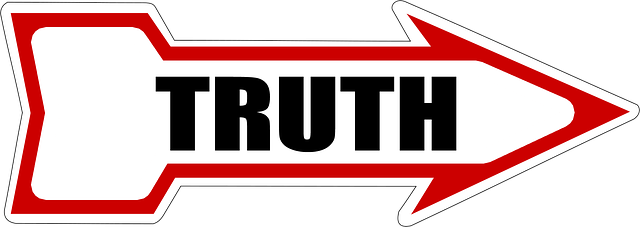
How much would you be willing to sacrifice for the honour of another? Some money, a little bit of time perhaps. But few are those who would be willing to give up a graduate degree or professional advancement for the sake of someone else’s honour. And Jewish law does not demand such, even for the honour of a parent[1]. Nonetheless Rav, the founder of the great yeshiva in Sura, or at the very least his teacher, Rebbe Yehuda Hanassi, was so sensitive to the honour of his colleagues that he was willing to forego professional advancement out of concern for their honour.
“Our Rabbis taught: Monetary cases are decided by three; but one who is a mumcheh lerabim, an acknowledged expert, may judge alone” (Sanhedrin 5a). Demonstrating the practical application of this leniency, both Rav Nacham and Rav Chiyya immediately note that they did judge cases alone.
The Gemara queries whether being an expert means that one must be both knowledgeable and able to apply that knowledge to new cases, or whether expertise requires one to also be officially recognized and granted permission to rule on cases. In modern terms, we might ask if this is a field that requires a license from a governing board—as do medicine, law and accounting—or can anyone who is competent do work for us, as in consulting, plumbing or any type of business? The Gemara suggests a compromise: one who is expert may serve as a lone judge even without formal recognition; however, unlike one who is officially granted permission to rule, the unofficial expert must pay from his own pocket for any mistakes he might make.
In a question that may seem strange to us, who believe that official titles are so important and often legally necessary, the Talmud asks, if someone is an expert, why does it matter whether or not he has been officially granted permission to rule? Either the person is expert in Jewish law, or the person is not. What difference does publicly acknowledging one’s expertise actually make? In a tradition in which humility is amongst the greatest of values, this question rings even stronger.
While today we might answer that a formal license is the only way to ensure the practitioner is competent (and yet such a system is far from perfect), our Talmudic rabbis were confident in the ability of the community to recognize who was and was not competent[2]. Perhaps the small size of the community made this much easier.
What worried our Sages is that not all who are brilliant are able to teach, and absent a license we are liable to have a situation where people actually violate Jewish law because the very knowledgeable teacher was unclear in presenting the material. After recording a number of these incidents, our Sages implemented a licensing system to ensure teaching quality. Of course, once a licensing system was in place it would also monitor technical competence.
One could be granted permission in any one of three areas of Jewish law, and it is this “formula”—or at least two parts of it—that is still in use today in ordaining rabbis.
Yoreh? Yoreh! loosely translates as ‘May one decide issues of ritual law? If so, the answer is yoreh, yes, he may rule on ritual law'. The same question and answer repeats itself for monetary law. Yadin? Yadin! And for declaring a ritual defect on a first-born animal. Yatir bechorot? Yatir!
Torah law requires that a first-born kosher animal[3] be brought to the Temple, its blood and fat sacrificed on the altar and the animal gifted to a kohen. If the animal had a defect that would disallow it as a sacrifice, all could then eat it. This law applies even if there is no Temple, such that it is crucial to determine which defects permit the animal to be eaten[4]. The Talmud notes that Rav spent 18 months (!) on a farm “in order to learn which was a permanent blemish [allowing the animal to be eaten] and which was a passing blemish [such that one could not eat the animal] (Sanhedrin 5b).
Yet despite his acknowledged expertise, Rebbe Yehuda Hanassi, Rav’s teacher, refused to give him permission to rule in this area of law. This is even more perplexing as immediately prior, the Talmud notes that Rebbe did give permission in all three areas to Rav’s half brother, Rava bar Chana.
The Gemara’s explanation is beautifully astounding. Both Rav and Rava bar Chana received their respective “permission to rule” as they left Israel to teach in Bavel. As learned as Rava bar Chana was, he did not compare to Rav, whose teaching laid the groundwork for the Babylonian Talmud. In order “to give honour to Rava bar Chana”, Rebbe held back semicha from Rav in this one area. Rav, as the leading Babylonian scholar, was held in high esteem in his birthplace of Bavel and needed few titles added to his name. Rebbe (and there is no indication that Rav disagreed) was concerned that Rava bar Chana—himself a great, albeit lesser, scholar—would not be given his due share of well-deserved honour. By giving him rabbinic authority in an area in which even Rav had no authority, people would realize that Rava bar Chana was truly a great Sage worthy of respect.
This notion is so beyond our cultural norms that many may reject or even scoff at such an approach. Yet it reflects the deep concern our greatest scholars—who needed no titles—had for one another.
Perhaps such an approach was beyond the comprehension of some of our Talmudic Sages, who offered a second explanation for why Rav was denied permission to rule in the area of blemishes of a firstborn. It is precisely because Rav was such an expert that he could not rule. His expertise allowed him to rule that many animals were blemished, even as others, less expert, could not see such a blemish. These lesser experts, extrapolating on what they had seen, might then rule that similar-looking animals were also permitted when in fact, such was not the case. Rabbinic rulings must be comprehensible to all or we risk misapplication of the law [5].
No matter which of these two answers may resonate with you, both offer much to think about.
[2] As Rav Moshe Feinstein zt”l noted in his response to a reporter’s question on how one becomes a recognized expert in Jewish law: “You can't wake up in the morning and decide you're an expert on answers. If people see that one answer is good, and another answer is good, gradually you will be accepted” (Interview with Rav Moshe Feinstein, New York Times, May 5, 1975).
[3] Jewish law classifies a kosher animal as either a beheimah or chaya. The former are the more domesticated animals, such as a sheep or a goat, whereas the latter would include more free-roaming animals such as a deer or a gazelle. The laws of a firstborn only apply in the case of a beheimah.
[4] Today the practice is to sell the animal pregnant with its firstborn to a non-Jew just prior to birth to avoid the issue altogether. After the birth, one could then buy back the animal.



